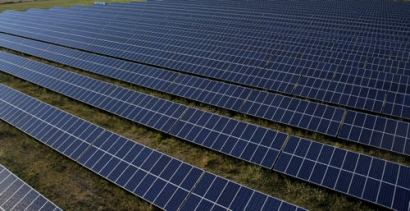
“Invenergy continues to lead the energy transition, and this record-setting project demonstrates our expertise at a new scale,” said Ted Romaine, Senior Vice President of Origination at Invenergy. “The Samson Solar Energy Center is the latest example of what can be achieved when companies and utilities seek an innovative partner to meet their sustainability goals and invest in a clean energy future.”
As a leading partner to commercial and industrial renewable energy customers, Invenergy has contracted more than 3,500 MW of wind and solar capacity to help more than 20 different corporate users across six U.S. markets and in Mexico to reach their sustainability and clean energy goals.
Samson Solar is one of many Invenergy developments that is powering daily American life, and will also provide more Texans with cleaner, cost-effective power through agreements with:
• AT&T: 500 MW
• Honda: 200 MW
• McDonald’s: 160 MW
• Google: 100 MW
• The Home Depot: 50 MW
• City of Bryan, TX: 150 MW
• City of Denton, TX: 75 MW
• City of Garland, TX: 25 MW
“At AT&T, we believe renewable energy is good for the planet, for our business, and for the communities we serve,” said Scott Mair, president of AT&T Technology & Operations. “With more than 1.5 gigawatts of renewable energy capacity, our portfolio delivers clean electricity to the grid, helps to create jobs and community benefits, and supports the transition to a low-carbon economy. We’re excited to participate in Invenergy’s Samson project through the largest corporate solar energy deal in the U.S.”
Located in Lamar, Red River and Franklin Counties, Samson Solar is a $1.6 billion capital investment and will support up to 600 jobs over the course of the 36-month construction period. In addition, the project will drive significant local economic development, bringing more than $250 million in landowner payments and supporting local communities through nearly $200 million in property tax payments over the life of the project.
Samson Solar will be constructed in five phases over the next three years, with each phase commencing operation upon completion. The full project is slated to be operational in 2023. When complete, it will produce enough energy to power nearly 300,000 American home

